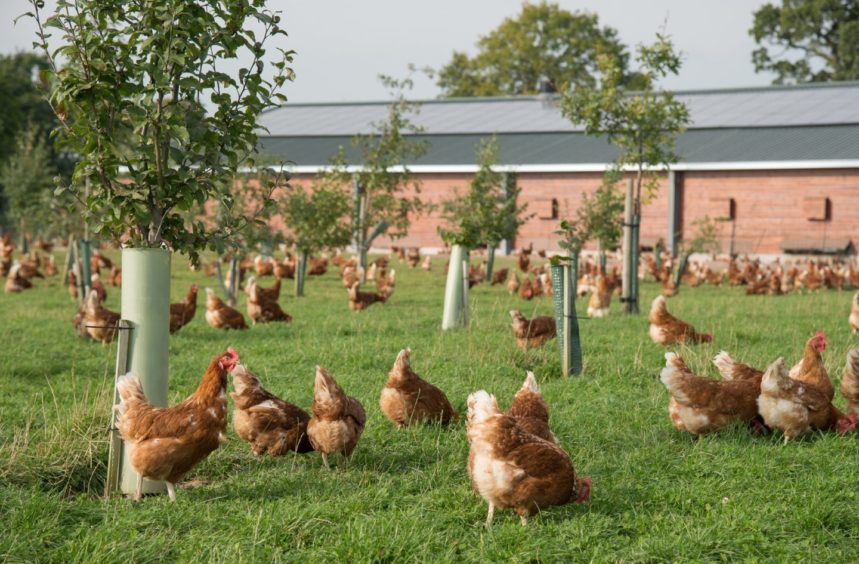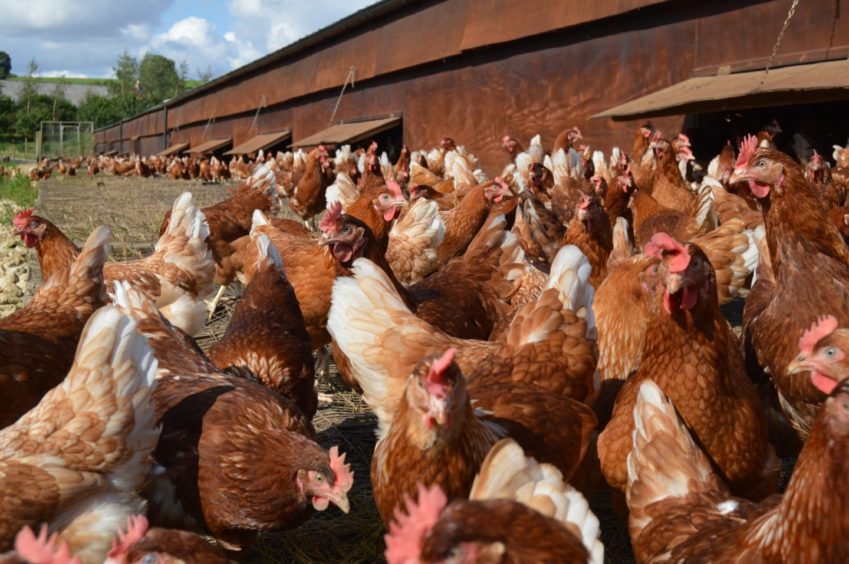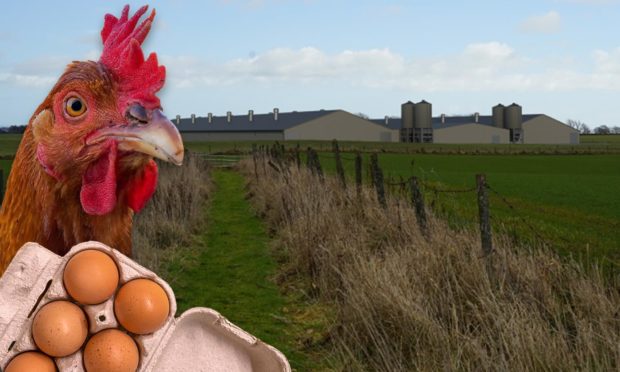A farmer trying to build hen sheds in Cononsyth has been accused of “bribing” critical neighbours with sacks of potatoes.
Farmer Angus Dowell has lodged plans to build two sheds, which house 32,000 hens each, at Cononsyth Farm.
The hen sheds would supply eggs.
Local residents are preparing a formal objection to the plan, fearful it will lead to bad smells and congestion in their rural corner of Angus.
Angus Dowell previously left a letter and a 12kg bag of potatoes at the door of several objectors
Some of the residents then donated the potatoes to a foodbank in Forfar. They were concerned taking them could be seen as accepting a “bribe”.
Mr Dowell’s letter said Cononsyth Farm hopes to work with the residents to come to an agreement over the plans.

Cononsyth Protest Group member John Bell said he has not heard from the farmer since the Christmas letter.
He said: “The letter was very nice, saying he’d like to work with us and that type of thing, but we have not heard from the farmer since.
“We didn’t know what to do with the potatoes, or if it would be seen as a bribe if we accepted them, so we got them all together and took them to Forfar Foodbank, just to be safe.”
Why are residents objecting?
The Cononsyth Protest Group has highlighted a number of issues.
Members claim the plans are the “thin end of a wedge” and are worried their approval could open the door to more ‘intensive poultry unit’ construction across Tayside.
The concerns include:
- Roads in the area are not suitable to handle an increase in large delivery vehicles
- The increased traffic would also create more noise, as well as the noise from the hens
- They anticipate an unpleasant odour will come from the area into their homes
- They fear plans for managing rainfall are “inadequate” and could lead to increased flooding
Similar plans are in the pipeline for the Easter Meathie farm, also in rural Angus, but those are still at an early stage.
‘Lack of consultation’
The protest group says there has been a lack of public consultation in the Cononsyth hen sheds process.
Physical events could not take place because of coronavirus restrictions. The applicant’s agent, Cogeo, held an online discussion instead.

Protest group members took screenshots of their respective chats with the intention of publishing them on their website.
They claim Cogeo told them they were not allowed to do so.
“We were quite surprised at that,” Mr Bell added.
“The online chat certainly doesn’t cover what you would expect from a public consultation, in any case.
“We told them we would anonymise the data, so any claims of GDPR, which they claim is the reason, wouldn’t have applied.”
‘Worthwhile charitable facility’
A spokesman for Cogeo said Angus Dowell was “delighted” to hear that a “worthwhile charitable facility” such as Forfar Foodbank benefited from his gift.
Cogeo insists the “bribery” claim is a misunderstanding.
A spokesman said: “It was simply a product sample at a time of giving (Christmas).
“Even prior to the development consultation, our client has hosted many of the neighbours for Christmas drinks in the past.
Several neighbours took the time to thank our client for the gesture and potatoes publicly through Facebook.”
Cogeo spokesman
“Everyone may have varied views, although it is nice to note that several neighbours took the time to thank our client for the gesture and potatoes publicly through Facebook.”
The spokesman said allowing the screen shots to be shared would be a breach of GDPR laws.
https://goo.gl/maps/6mRTazM8yZS7P4dx6
He added the Cononsyth hen sheds have to be approved by Sepa and Angus Council.
“This process is robust and, importantly, independent.
“We are certain the emission from the development more than complies with the current standards and legislation.”
‘Economic boost’
Mr Dowell said four jobs will be created by the plans and he is “passionate” about selling the produce locally.
He said: “This project is an excellent addition to an arable farm and… sustainability is within our aspirations.
“We are also delighted to create 16 acres of additional woodland, which will be planted in the range for bird welfare, carbon sequestration and odour management.”
